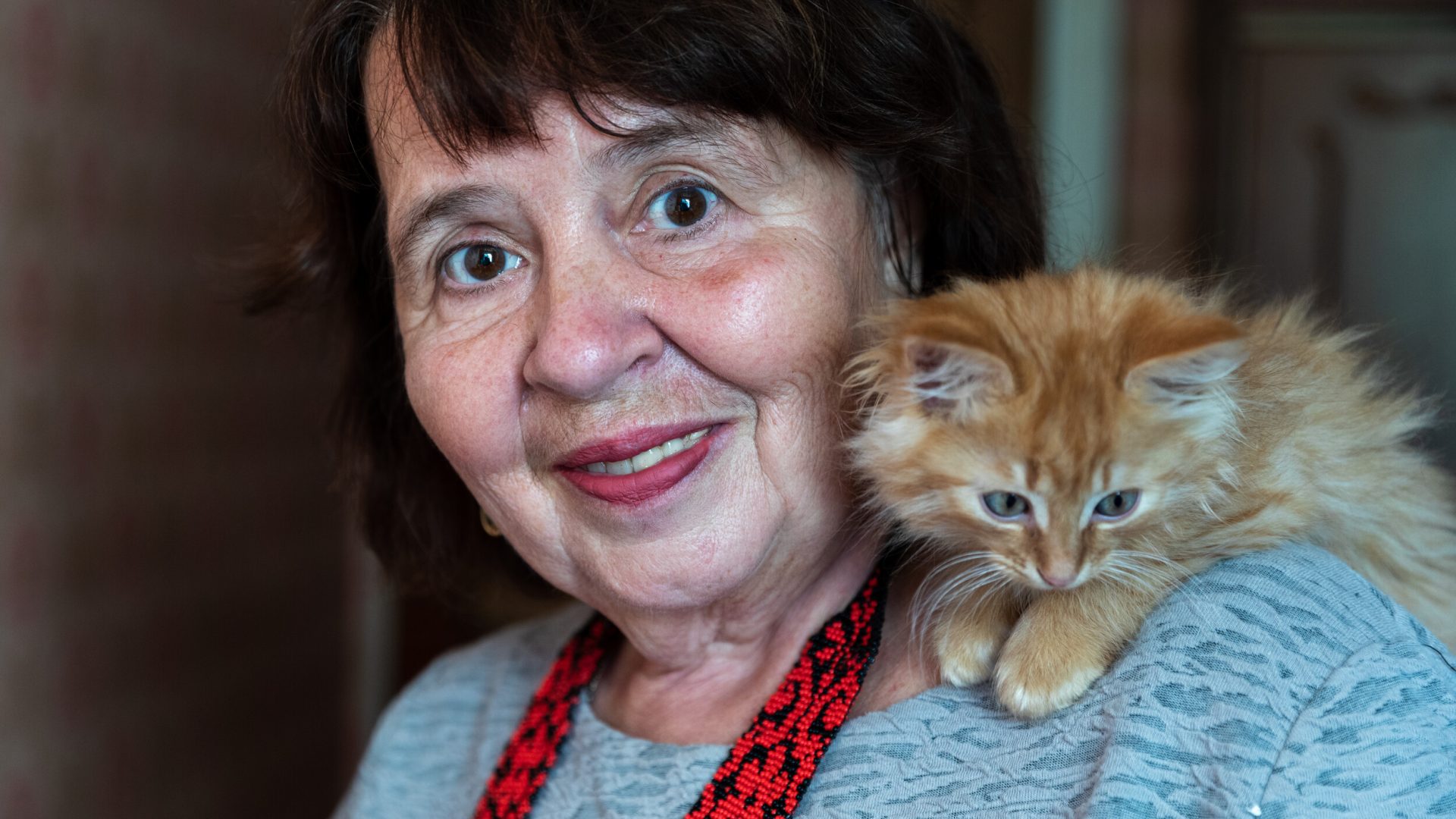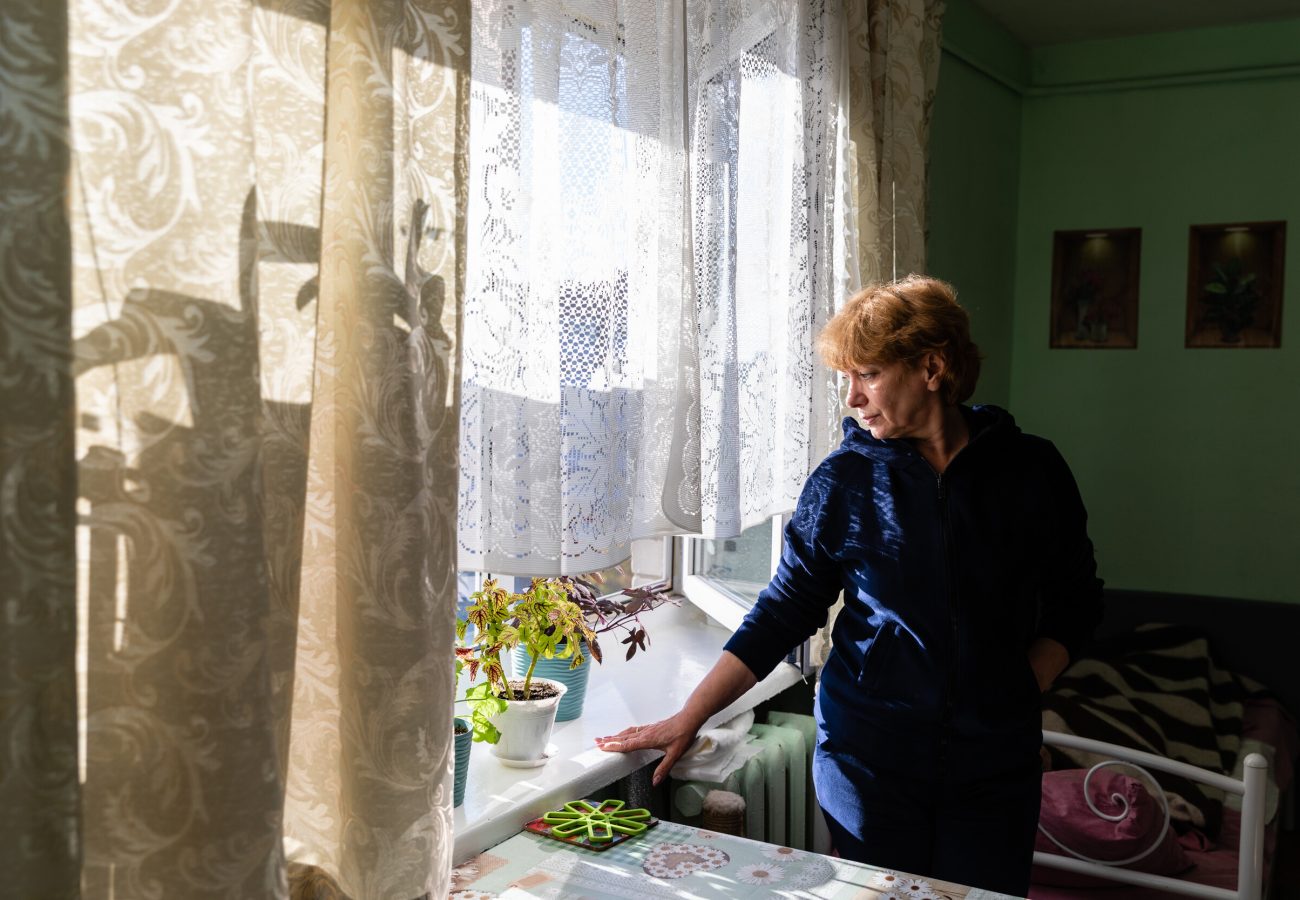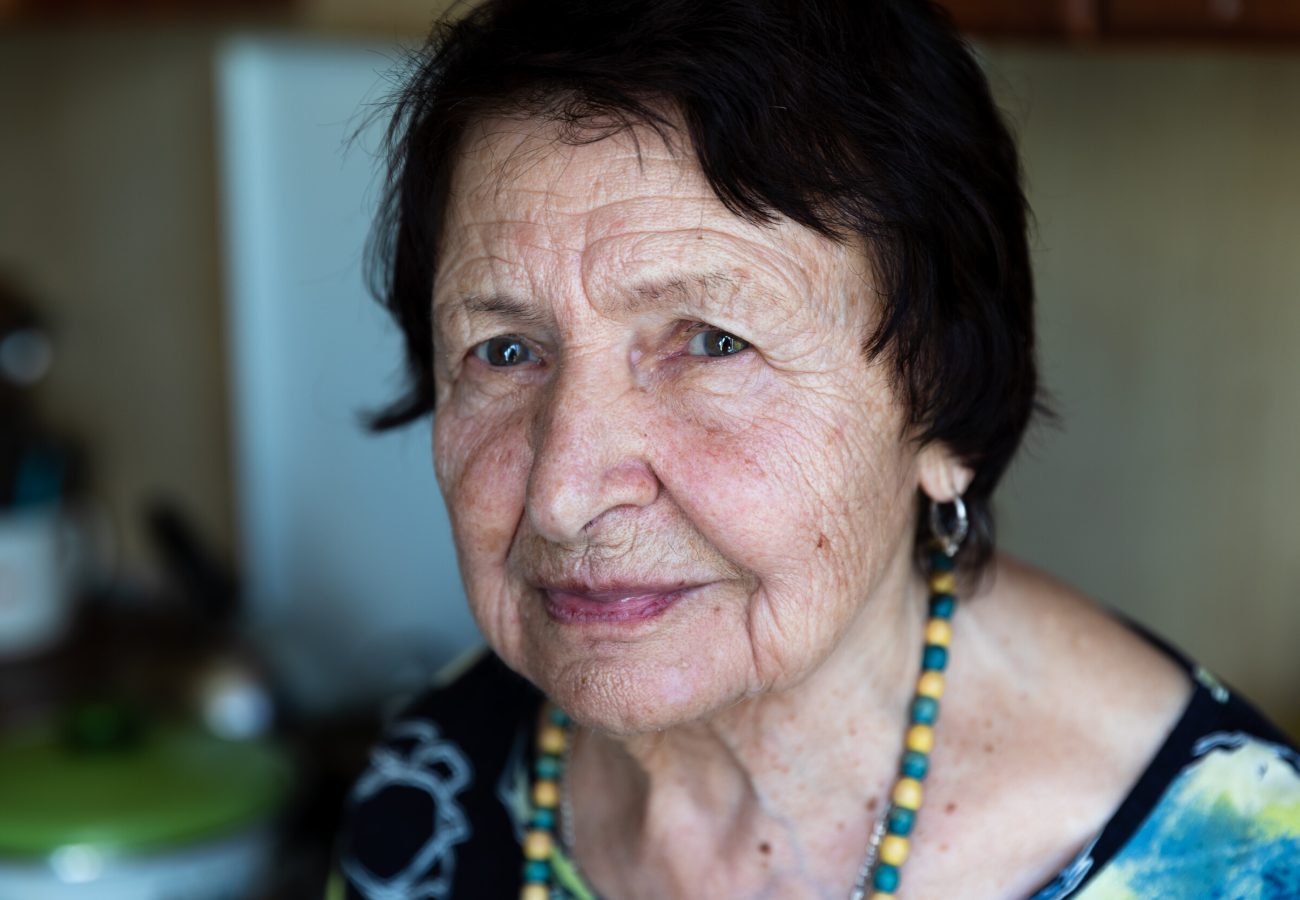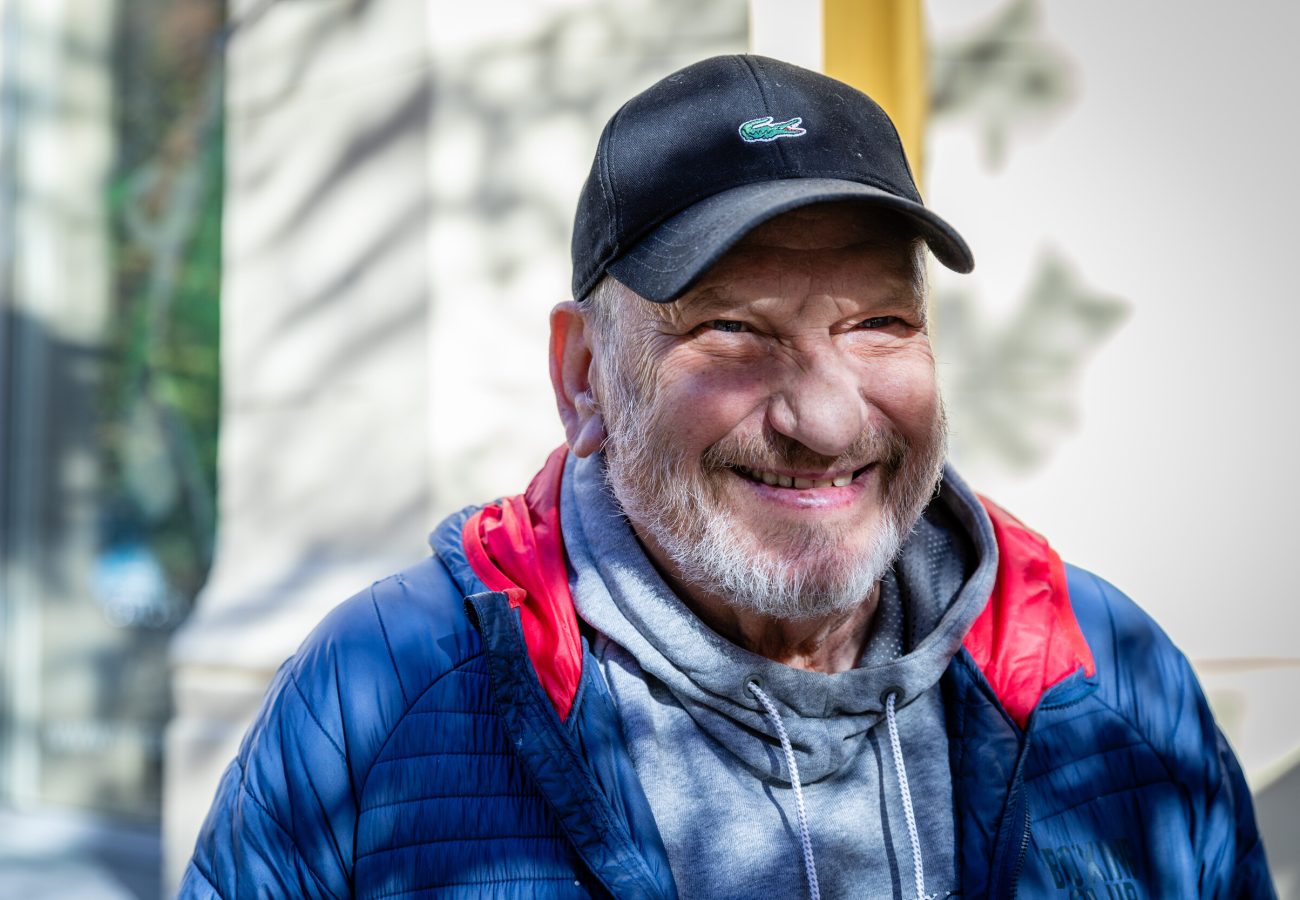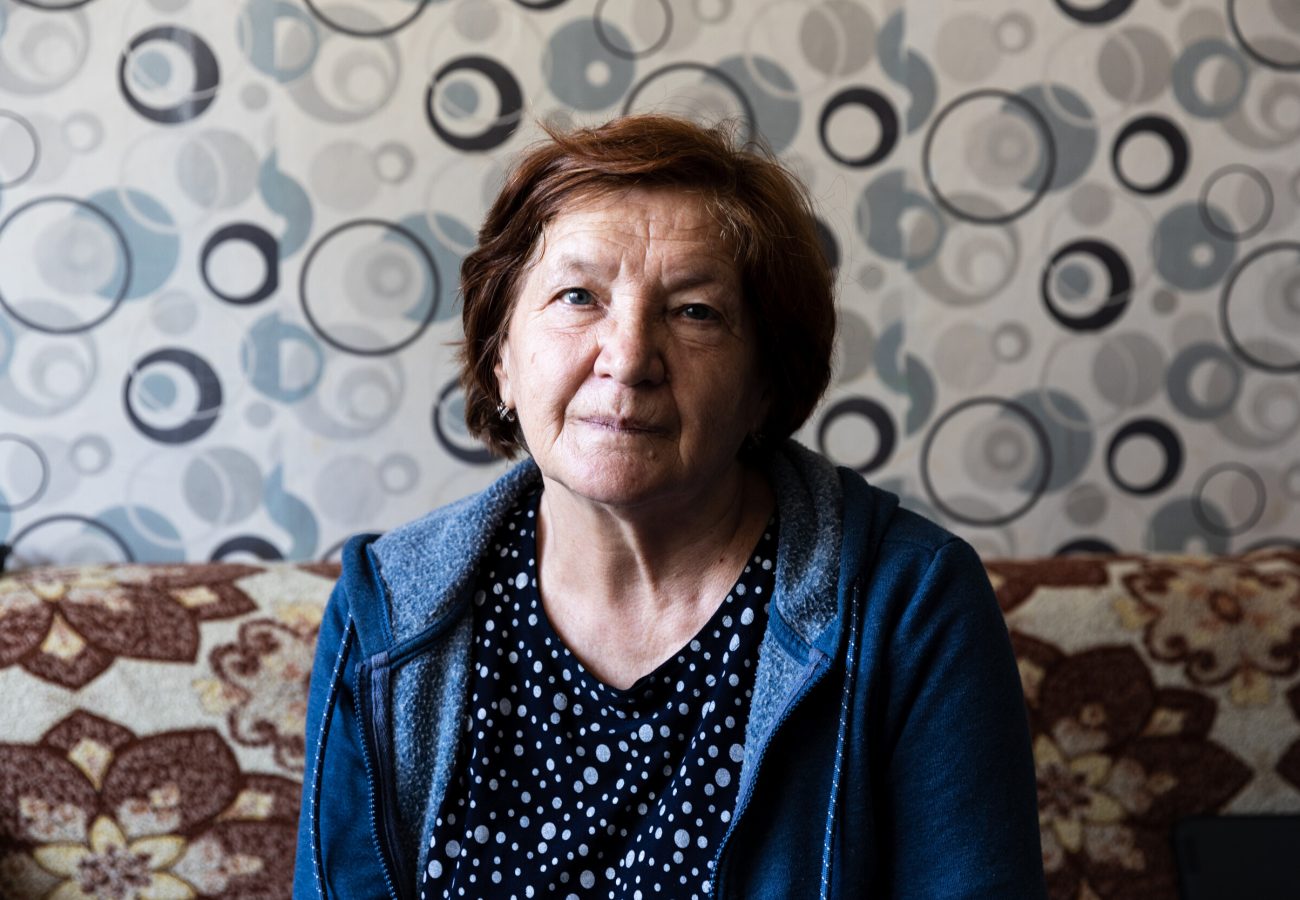She longs for the ability to live a fuller life herself. “I want to be able to walk in the park, go to the theatre,” she says. “But I can’t leave him alone for too long.”
She has rebuilt some semblance of a life, even repainting the walls of their temporary home. “We lost everything – our house, our belongings,” she says. “But we are trying to settle in.” Yet the war follows her, not just in memories, but in the wail of air raid sirens and the ever-looming front line. “I don’t know where we’ll go if it comes here, too,” she says quietly.
For now, she perseveres. “There are people who care,” she admits. “And that makes a world of difference.”
Viktor, 73 – former miner
The war forced Viktor, 73, to leave behind the life he had built. For nearly two decades, he worked in the mines of Dobropillia, a town in the Donetsk region. When the full-scale invasion began, he and his family – his wife, daughter, and son-in-law – made the difficult decision to flee. They now share a rented apartment in Dnipro, dividing the 18,000 hryvnias (£345) monthly cost among relatives to make ends meet.
“We survive as a community,” Viktor says. “Without pooling our resources, I don’t know how we would manage.”
For Viktor, displacement brought more than just financial strain. Years of grueling labour left him with osteoarthritis, requiring a hip replacement that drained his savings. Cataract surgery followed, another financial burden. His pension of 8,000 hryvnias (£153), supplemented by a small stipend for internally displaced persons, barely covers the essentials.
Yet, resilience defines his every step. A walking stick, provided by humanitarian aid, helped him recover from surgery. Conversations with social workers offer solace. When asked about his future, he speaks not of hardship but of hope. “I just want to go fishing again,” he says, recalling his quiet moments by the river, undisturbed by air raid sirens.
Like many older Ukrainians, Viktor envisions a future where ageing does not mean sacrificing dignity.
For now, he adapts, finding moments of peace in the unfamiliar. “I miss home,” he admits. “But here, we endure.”

